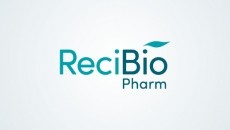Single injection rivals implant for drug delivery
require continuous administration, according to preliminary
experiments with a novel drug delivery technology, reports Phil
Taylor.
The delivery vehicle, called BioSilicon and developed by nanotechnology company pSivida, BioSilicon's porous nanostructure effectively stores an active compound in tiny pockets that release minute amounts of drug as the silicon dissolves.
The study, performed by pSivida in collaboration with Australian company EpiTan, compared four BioSilicon formulations containing the tanning agent Melanotan (alpha-melanocyte stimulating hormone) to EpiTan's implantable formulation, currently in clinical development.
Melanotan is designed to promote the formation of the skin pigment melanin in the skin without exposure to ultraviolet light, and thereby protect fair-skinned people in sunny climates from developing skin cancer. Previously the drug has been delivered as a daily injection that required significantly higher quantities. As with any pharmacological agent, it is preferable to limit the amount delivered to reduce the risk of side effects
Data obtained from the in vivo study conducted at the Institute of Medical and Veterinary Science in Adelaide, South Australia, indicated that a single injection of BioSilicon loaded with Melanotan released the active drug over a sustained, 14-day period.
In February, EpiTan announced that it had filed a patent application for discoveries surrounding the increased efficacy (i.e. increase in melanin) of Melanotan when given at significantly lower dose levels in a sustained manner. This patent covers the collaboration work by EpiTan and pSivida.
The next stage of development will progress towards a commercially viable version of this formulation. Meanwhile, the implantable version of Melanotan is scheduled to be available in 2007, after the successful completion of clinical trial programs and registration with the relevant regulatory authorities around the world.
"The outcome of this collaboration could lead to a second-generation injectable Melanotan product," said Iain Kirkwood, EpiTan's managing director. "It would give consumers further choice as to how they could have Melanotan administered. They could now conceivably have the choice of a solid implant or a liquid injection."
BioSilicon has also shown promise in a proof-of-principle study looking at its ability to deliver localised radiotherapy to tumours in the form of implantable beads, a procedure known as brachytherapy.















